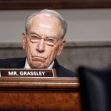America is watching the lawmaking process with the same attention as would ordinarily be dedicated to the sports that have long been absent from the country under the weight of the coronavirus pandemic. On July 27, 2020, Republican Texas Senator John Cornyn introduced the newest effort to provide comprehensive federal COVID-19 relief legislation. The country follows it with bated breath: the Health, Economic Assistance, Liability Protection and Schools, or HEALS, Act.
Among the HEALS Act’s provisions is the SAFE to WORK Act, which offers blanket liability protection. “Republicans want to protect doctors, nurses, school districts, and universities from a second epidemic of frivolous lawsuits,” said Senate Majority Leader Mitch McConnell. “If Democrats don’t come to the table, our Nation’s reopening will be at the mercy of trial lawyers.”
The bill constructs legal safeguards for healthcare and education industries, as well as corporations, religious institutions, and non-profits. It broadly secures all publicly and privately owned establishments from lawsuits for coronavirus-related injury, save for “willful misconduct or gross negligence.” These protections would stretch to the year 2024 and apply retroactively to 2019.
It is essential to understand that any bill, even a coronavirus stimulus bill, undergoes an arduous journey before becoming a law. Upon its creation, a bill is sponsored and introduced to its respective chamber of Congress and sent to appropriate committees for study and review. For example, a law concerning primarily farmers might be recommended to the Agriculture Committee, to be reviewed in that specific topical context. Committees can suggest amendments to the bill or “table” it, thereby killing the proposed legislation. If the committee (and or possible subcommittees) agree to release the bill, it can move on to floor action.
In the House of Representatives, the Rules Committee is responsible for deciding when and how a bill will be brought to the floor for a vote; in the Senate, that power rests with the Majority Leader. With a majority vote, the propositioned legislation starts the entire process again in the other chamber of Congress.
For a bill with parallel legislation (for example, the HEALs Act as the Senate’s response to the House-passed HEROES Act), it moves on to a Conference Committee for debate and negotiation between the two chambers of Congress. Once differences between the corresponding bills are resolved, the new legislation can return to the House and the Senate for a final vote in each chamber.
The bill then finds itself further endangered at its next destination: the desk of the President. There lies the power to sign the bill into existence or veto it, which sends the bill back to Congress to undergo yet another round of voting to potentially override the rejection. The White House has backed the HEALS Act from its introduction, so this step is not a likely place for this coronavirus bill to see issues.
Congress is another story. The House and Senate will have to find common ground on the liability issue in order to get a new COVID-19 relief bill to the President’s desk, with the added urgency of time.
Congress’s last round of coronavirus aid, the CARES Act, was enacted months ago. Some of its most time-sensitive provisions—like added unemployment and business insurance benefits—are running out. With COVID-19 not showing signs of slowing down as it batters the U.S. economy, a new stimulus package has been anxiously awaited. The House passed their HEROES Acts ten weeks before the Senate’s relief bill was even introduced, contributing to the tension in the process now.
Without successful bipartisan negotiations, the relief bill can be thrown into stasis at every step of its complicated legislative journey. McConnell’s personal control over the Senate’s floor action is all the more poignant as he has emphasized that he will not put a bill on the Senate floor without the sweeping liability terms. Conversely, the Senate minority leader, Chuck Schumer, announced he intends to block any Republican legislation that provides such “corporate legal immunity.”
The House relief bill proposes a unified and enforceable national approach to workplace protections to be set by the Occupational Safety and Health Administration (OSHA). With cohesive federal rules for job-related COVID-19 safety, workers would be able to pursue lawsuits if their employers fail to meet the federal safety standards. It includes protections against retaliation if employees report their workplace for violating the rules.
On the other hand, if the HEALS Act passes as written, it would offer no such protection for employees. Instead, it aims to shield business owners who at least have a “written or published policy on the mitigation of transmission” according to the corresponding government standards, which vary enormously by local and state laws and guidelines. If businesses feared reopening on account of hypothetical lawsuits, such worries would dissolve, as would much of their potential consequence for operating unsafely—even if they were going against government mandates and public health guidelines.
With the seemingly unwavering demands on each side, however, a new law is unlikely to pass without extensive negotiation altering aspects of the entire package. It is yet unclear how much leeway may be afforded in negotiating the liability aspect.
The economic impact of COVID-19 is ongoing and severe, and any interval of delay in the passing of a new stimulus package postpones crucial resources for constituents in dire need. The Republican’s liability protection is among the bargaining chips to be discussed as Congress moves forward in search of a solution. Negotiations are an integral part of building legislation, a necessary factor in any law getting signed into reality. Still, the crawling pace of the next U.S. stimulus package makes the convoluted nature of lawmaking all the more prominent as elected leaders try to reach an agreement. Ultimatums and refusals to negotiate at all, as we see here, will inevitably plague the already complex process of writing a new coronavirus response into law.






